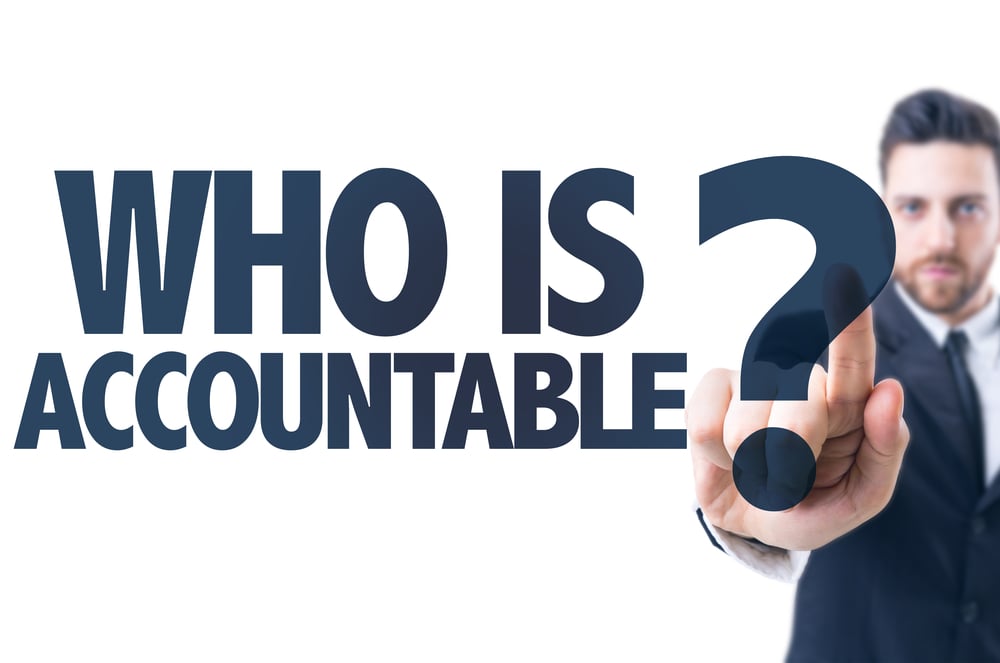5 IMMEDIATE Opportunities to Lower Your Taxes...
Taxpayers have plenty to be concerned about in 2024…
By: RL Wealth Partners Feb 23, 2022 4:07:15 PM

What's the hardest lesson you've ever had to learn about money?
What’s the most powerful one?
For many folks, these lessons come from hard-earned experience.1
They aren’t taught in a classroom. Instead, many folks go to the school of hard knocks. It’s the learn-as-you-go way to understanding personal finance.1
And those lessons we pick up can shape how we think about and handle money.2
They can also stick with us for life.
So, what are the money lessons that are never too early to know?
Are there any that you still have to learn?
Or get better at?
Let’s find out. These essential finance lessons aren’t typically taught in school, but they’re still incredibly valuable to know as early as possible.
And they can take some people a lifetime to learn.

Financial accountability means responsibility, honesty, and recognizing how your choices affect your financial outcomes. It requires planning, routine check-ins, consequences, and a commitment to try again when things don't go your way.
Ask Yourself: When's my next check-in to see how I'm doing on my financial goals? What will I do if I don't hit my target?
Example: "If I don't hit my next target for my financial goals by XX/XX, I'm going to find an accountability partner to help me stay on track."

Invest in your savings, retirement, and insurance before spending on anything else. Make them mandatory expenses. If you do, you can re-order your other spending around these financial priorities.
Ask Yourself: What do my financial safety nets look like? Am I on track to retire when I want to — or keep enjoying my retirement the way I want to?
Example: "I'm going to automate monthly deposits into my savings, retirement, and health savings accounts. And I'm going to check in on those deposits quarterly to see if I should make any adjustments."

Wealth gives you options, but money alone won't fulfill you.
Time, relationships, and your well-being can matter far more than money when it comes to long-term happiness.3-5
Ask Yourself: When and why do I prioritize money over my relationships or health? How can I change that?
Example: "To get a better work-life balance, I will not check work emails after a certain time every day, and I'll commit to getting X hours of sleep every night."

A money mindset is the beliefs and attitudes about money that unconsciously shape financial behaviors.
Knowing your money mindset can be the first step to improving it and making better financial choices.6
Ask Yourself: When I think about my financial future, do I feel more anxious or optimistic? When I run into a financial issue, do I procrastinate or focus on solutions?
Example: "When I start feeling stressed about a financial decision or issue, I'll take a step back and wait until I'm more relaxed to address it."

You do NOT need to be a personal finance pro to make smart choices for your future. A solid strategy, commitment, and a willingness to learn can go a long way towards financial success.
Ask Yourself: What aspects of personal finance confuse or overwhelm me? What could I learn more about — taxes, retirement, interest rates, or inflation?
Example: "I'd like to get a better handle on tax planning or retirement planning, so I'm going to take a class or talk with a professional."
We have to practice life's important financial lessons to make them actually work for us.
Familiar or foreign, learning these lessons about money isn’t like memorizing a simple fact. It’s not a one-and-done deal.
It’s kind of like honing a life skill.
We have to practice important financial lessons to make them actually work for us.
And the lessons we need the most can change at any point in life.
In fact, even those of us who are pretty savvy with money still need to reconnect with key lessons of finance from time to time.
Why?
Because new situations and challenges that test us can pop up at any time.
After all, in life and finance, things can change quickly.
That can mean we end up facing new complex financial choices that we never expected.
If or when that happens, you don’t have to learn your next important financial lesson the hard way. And you don’t have to jump into any decision blindly or stand at the crossroads alone.
That's why our 365 Retirement Planning process involves regularly monitoring your accounts, assets, and goals - to help ensure they continue to align with the written plan we build together.
If anything changes with your desires or your situation, we reconvene to adjust things as necessary to evolve with your needs.
If we note anything of concern while monitoring, we’ll contact you so that we can choose a plan of action together.
Sources:
1 -https://journals.sagepub.com/doi/full/10.1177/2167696819861467
2 - https://sjes.springeropen.com/articles/10.1186/s41937-019-0027-5
3 -https://www.forbes.com/sites/briannawiest/2019/02/13/this-harvard-study-says-the-happiest-people-have-more-time-and-less-money/?sh=15c9b4ca2ca8
4 -https://www.inc.com/jessica-stillman/happiness-california-berkeley-research.html
5 -https://thehill.com/changing-america/well-being/mental-health/482958-what-makes-people-happier-than-money-according-to
6 - https://www.capitalone.com/about/newsroom/2020-capitalone-mindovermoneystudytips/
Taxpayers have plenty to be concerned about in 2024…
Have you been making good use of the recent tax code changes to legally reduce the amount of taxes...
A Roth IRA is an after-tax qualified account that encourages you to save for...